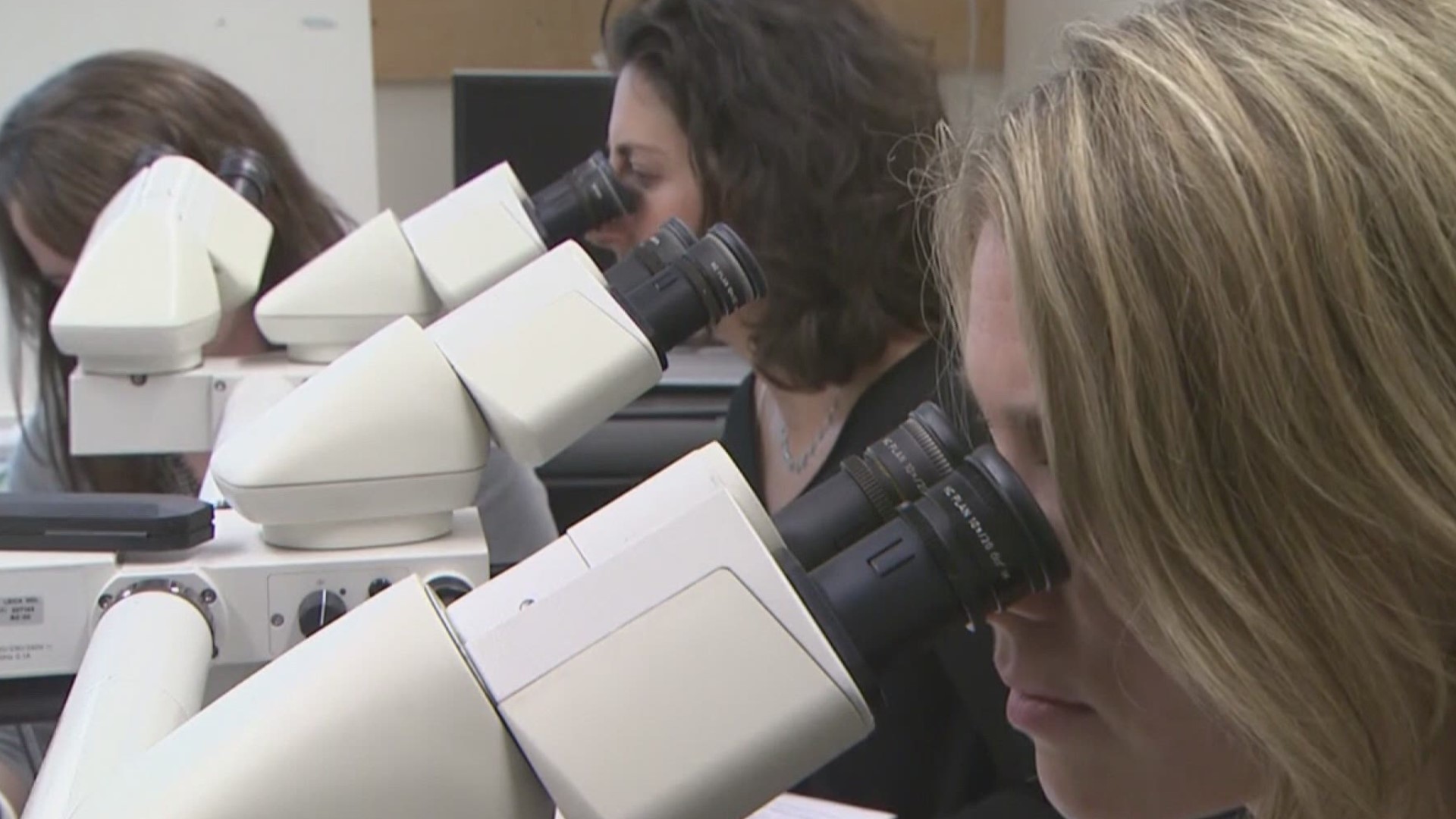PORTLAND, Ore. — As vaccination efforts continue, doctors in Oregon are discovering local evidence that the COVID-19 virus is trying to survive.
“The virus is changing and trying to evolve as we're trying to fight the virus,” said Dr. Brian O'Roak, associate professor of molecular and medical genetics at Oregon Health & Science University (OHSU).
O’Roak is part of a specialized team at OHSU that’s tracking how the COVID-19 virus is changing in Oregon. At the Oregon SARS-CoV-2 Genome Sequencing Center, researchers are studying about 1% of the state's cases. It’s a relatively small sample, but one that led to a surprising discovery about a month ago: An outbreak featuring the more contagious and deadly variant of the COVID-19 virus known as the B117 variant. Originally found in the United Kingdom, the variant has been spreading across the United States.
“We knew it was just a matter of time before they [variants] entered the U.S. and started to spread in our communities,” said O’Roak.
Researchers shared their findings with the Oregon State Public Health Laboratory. Further tests revealed another, even more concerning discovery.
“There were additional mutations happening,” said O’Roak. “Including this E484K mutation.”
Also known as the "Eek,” mutation, researchers have found E484K in Brazil, South Africa and the United Kingdom. Oregon's case was a first in the U.S. and O’Roak believes it occurred here spontaneously—a sign that the virus is evolving.
“Why it's being called 'Eek' by some people is that it might allow the virus to have some resistance to antibodies,” said O’Roak. “And depending on how much resistance, that may make vaccine less effective at preventing COVID-19.”
O'Roak stressed that even against virus variants, current research suggests the COVID-19 vaccine is still effective in preventing severe cases of the disease and death. As health officials strive to achieve herd immunity, O’Roak said the most important takeaway from their recent discoveries is the importance of staying the course, following COVID-19 safety protocols including wearing masks in public.
“If we can keep viral transition at a minimum," said O'Roak, "We can really stop these variants of concern from overwhelming our country like they have in the U.K., South Africa and Brazil.”

